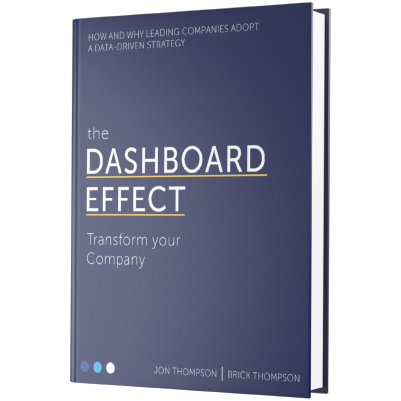Many mid-market companies experience one of two scenarios when it comes to their data: there’s either a lone report wizard manually pulling numbers, or a technical team great at building data pipelines but unable to translate those numbers into meaningful business insights.
As pressures increase to demonstrate performance — whether to internal stakeholders, company leadership, or external investors — the calls for accurate, timely reporting keep getting louder. Private equity firms want deeper visibility, boards demand quick access to performance metrics, and the pace of business evolution means your data solutions can’t remain status quo.
Your challenge doesn’t only lie in collecting data. It’s transforming raw numbers into a single source of truth that can drive real decision-making. And finding professionals who can bridge technical skills with business understanding? That’s becoming nearly impossible in today’s competitive landscape.
This is where flexible, evolving data solutions can make all the difference.
The Imperative of Dynamic Data Reports
As the pace of business evolution accelerates, your data solutions can’t afford to stand still. Whether you have that report wizard or an entire technical team building complex pipelines, the challenge remains the same: transforming raw data into actionable insights.
Poor data reporting isn’t just an inconvenience — it carries real risks. People will lose faith in the reports you’re putting out there if you can’t be responsive to how the data’s changing or the needs are changing. The consequences can be significant:
- Internal stakeholders may abandon reports that don’t meet their needs
- Executives face reputational risks when reporting fails
- Investors and board members become frustrated with slow or inaccurate reporting
As pressures mount, investors are calling for better visibility into data, hold periods are getting longer, and the competition for data talent is fierce. More companies leaning into AI means that you need good data to actually do that well, making flexible, adaptive data solutions not just a luxury, but a necessity.
The key is finding a solution that can meet you where you are and evolve as your business changes — without the enormous cost and complexity of building an entire system or data team from the ground up.
Managed Data Services: A Foundation for Efficient, Adaptable Reporting
It’s common to feel trapped between technical complexity and business needs, with data pipelines that exist but don’t deliver meaningful insights. Managed data services bridge this gap, particularly for organizations struggling to maintain stable, consistent data reporting.
This solution is ideal when you have systems but lack the infrastructure to turn raw data into actionable intelligence. Specifically, it’s perfect for companies with one or two people who know how to pull reports manually, and a need to protect core transactional systems from constant reporting requests.
With a platform that automatically runs reports, you can:
- Create a single, consolidated source of truth
- Prevent data inconsistencies across multiple reports
- Monitor solution stability to avoid critical failures
- Reduce technical risk by avoiding direct system queries
Incorporating managed data services doesn’t mean replacing your team, but giving them a robust, maintained data infrastructure from which everyone benefits. And the best part? You don’t need to build everything from scratch. These services are designed to meet you where you are and evolve alongside your business’s changing needs.
Managed Data Analytics: Turning Raw Data into Insights You Can Use
Managed data analytics addresses a critical gap: converting technical capability into strategic understanding. This solution is crucial when your technical team can build data pipelines but struggles to translate numbers into meaningful business insights.
It’s difficult to find professionals who can do more than just pull data but also understand the deeper business context. This demands a unique skillset that combines technical expertise with the ability to:
- Engage with business stakeholders
- Understand core business objectives
- Ask the right questions about what truly matters to the organization
It’s not enough to create visually appealing data. You need to understand the fundamental business impact, too. What are you trying to do in your business? What is important to you? Are you worried about sales rep performance? Are you worried about marketing channel attribution?
Managed data analytics covers more than just reporting. It provides:
- A client success manager who can “wrangle chaos”
- Build consolidated roadmaps
- Keep teams moving in the same direction
- Complement existing skill sets
Good data isn’t a luxury anymore — it’s a necessity. A solution like managed data analytics allows mid-market companies to garner sophisticated insights from their data without the enormous cost of building a full data team.
Making Your Business Data Work For You Doesn’t Have to be Complicated
Ever-changing business needs, mounting pressure from stakeholders, and the growing importance of data-driven decision-making — status quo data solutions don’t cut it for the expectations you’re under.
Managed data services and managed data analytics are options that offer a lifeline to those caught between technical complexity and business strategy. Whether you’re struggling with manual reporting processes or have technical teams unable to translate data into meaningful insights, these solutions meet you exactly where you are.
As data-driven organizations become the norm, your competitive advantage lies not in having the most data, but in your ability to turn that data into actionable intelligence. Managed data solutions offer a strategic path to:
- Protect your core systems
- Create a single source of truth
- Provide insights that drive real business decisions
- Adapt to your changing business needs
Don’t let data complexity hold your business back. Be open to flexible, intelligent data solutions that can grow and change with you. Good data is the new currency, and the right approach can transform your greatest information challenge into your most powerful business advantage.
